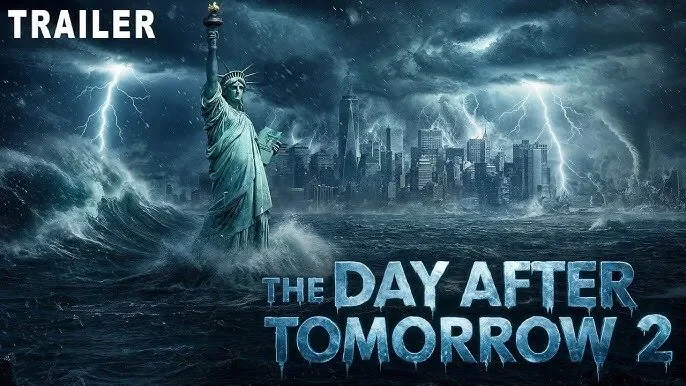The long-awaited 2025 reimagining of The Day After Tomorrow storms into theaters with the weight of a legacy and the urgency of modern climate anxieties. Unlike its 2004 predecessor, which pioneered large-scale disaster spectacle for its time, this reboot embraces cutting-edge CGI, IMAX-ready visuals, and an eerily plausible scientific foundation. The film wastes no time throwing audiences into the chaos—oceans swell, the atmosphere collapses, and entire cities are reduced to icy wastelands within minutes. From the frozen skyline of New York to the submerged streets of Tokyo, director James Whitmore crafts a relentless, globe-spanning canvas of destruction that feels both thrilling and disturbingly possible. Yet beneath the spectacle lies a deeply human story about resilience, sacrifice, and the limits of hope when the planet itself turns against us.
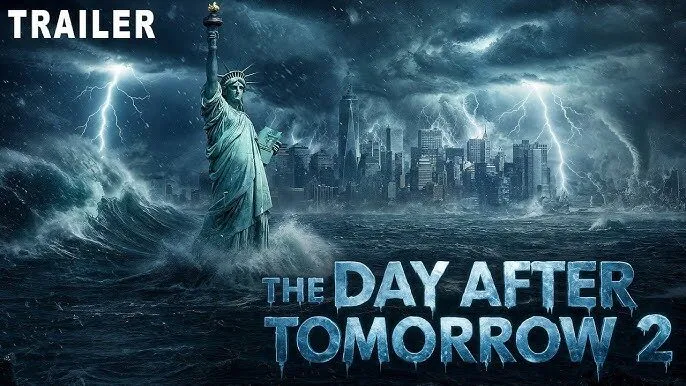
At the core of the film’s narrative is Dr. Ethan Cole, a brilliant but disillusioned climatologist played by Chris Hemsworth in one of his most grounded roles to date. Haunted by ignored warnings and bureaucratic apathy, Ethan finds himself racing against time not only to save his estranged daughter (Florence Pugh) trapped in a snow-entombed Manhattan library but also to convince a fractured international community to cooperate before the entire Northern Hemisphere freezes over. Their father-daughter relationship anchors the chaos, offering moments of raw vulnerability amidst the film’s towering waves, collapsing infrastructure, and roaring blizzards. Pugh shines with ferocity and emotional nuance, proving once again why she is one of this generation’s most magnetic performers. Together, Hemsworth and Pugh’s dynamic breathes urgency into a narrative that could otherwise be consumed entirely by special effects.
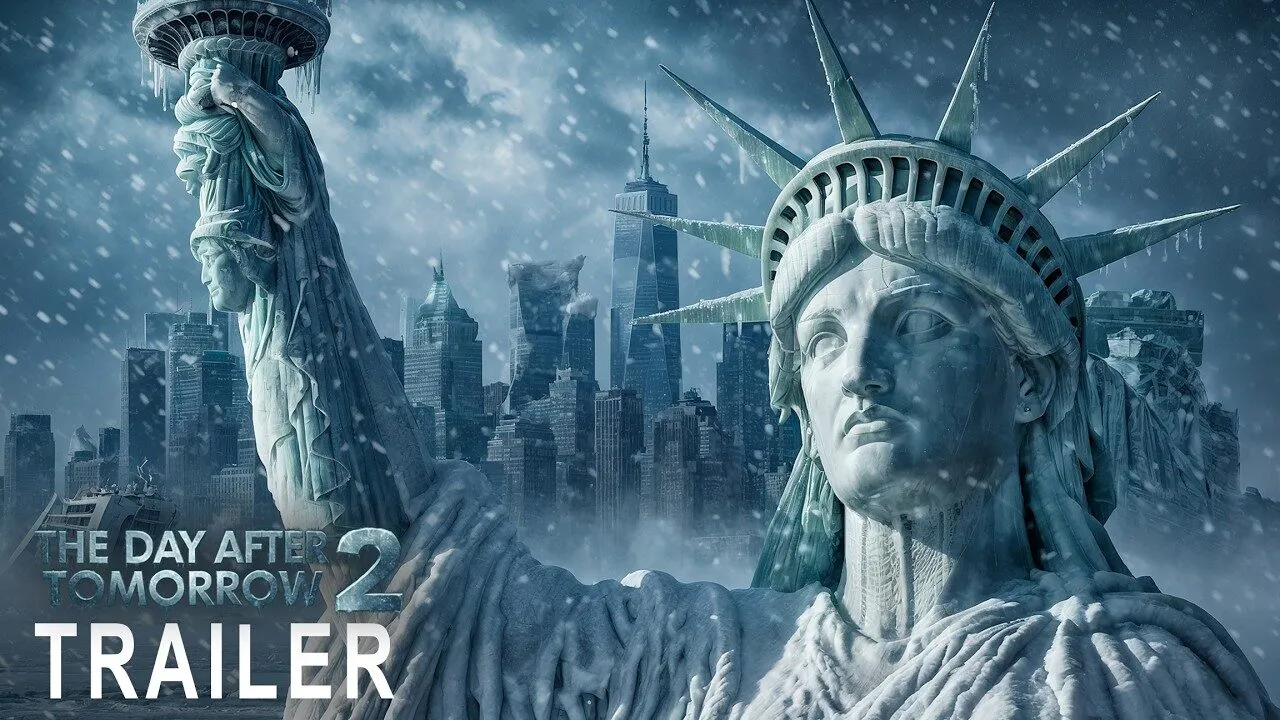
One of the reboot’s most striking elements is its unapologetic political commentary. Where the original film used climate change as a dramatic backdrop, the 2025 version leans fully into the sociopolitical consequences of environmental collapse. Nations squabble over dwindling resources, governments falter under mass migrations, and technology itself becomes a weapon as satellites misfire and nuclear plants freeze beyond control. Particularly chilling are the sequences showing ordinary citizens—families, workers, children—caught between survival and despair, reminding the audience that the greatest danger isn’t the storm itself but humanity’s failure to act until it’s too late. The screenplay smartly avoids heavy-handed preaching, weaving its cautionary message seamlessly into character-driven arcs and edge-of-your-seat survival scenarios.
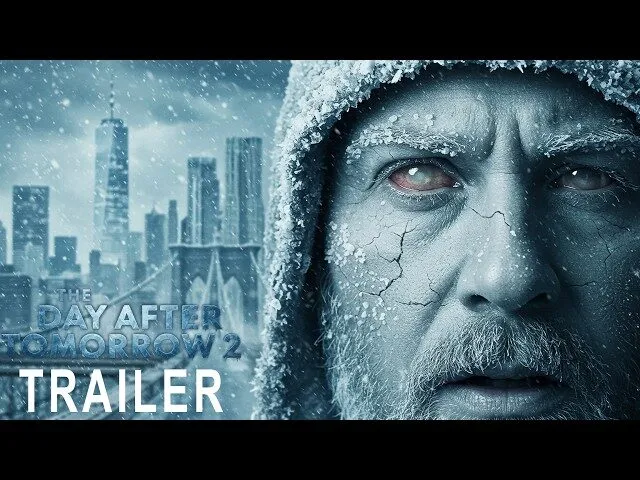
Technically, The Day After Tomorrow (2025) is nothing short of a cinematic marvel. The visual effects are breathtaking, blending photorealism with hyper-stylized destruction in ways that feel immersive without ever descending into cartoonish excess. A tidal wave sweeping across Rio de Janeiro, glaciers swallowing Canada, and a midair plane crash caused by turbulent atmospheric shifts stand out as set pieces destined to be studied in film schools for years to come. The sound design—booming winds, groaning ice, deafening silence of frozen cities—is equally masterful, pulling audiences into the sensory terror of environmental annihilation. Complementing the chaos is Hans Zimmer’s thunderous yet haunting score, oscillating between swelling orchestral dread and delicate piano refrains that humanize the tragedy unfolding on screen.
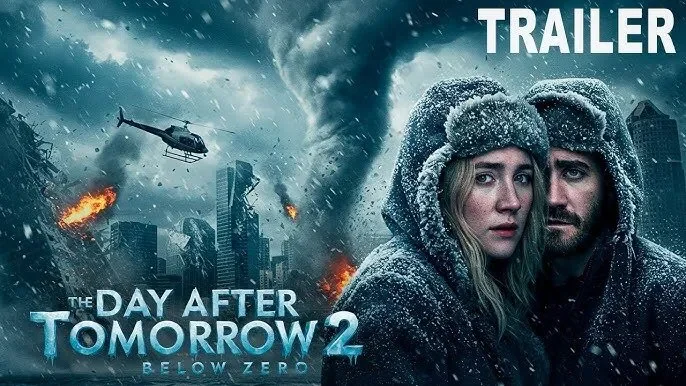
Ultimately, this reboot manages what few remakes ever achieve: it honors the original while carving out a bold, distinct identity. It is at once a pulse-pounding disaster blockbuster and a sobering reflection of our collective negligence toward the planet. While its dialogue occasionally leans into melodrama and its runtime stretches a bit too long in the third act, these minor flaws are drowned out by the sheer emotional impact and technical brilliance on display. The Day After Tomorrow (2025) is not just a movie—it’s a cinematic warning shot, a mirror held up to a species flirting with its own extinction. Equal parts thrilling, heartbreaking, and terrifyingly relevant, it cements itself as one of the most essential films of the decade.
